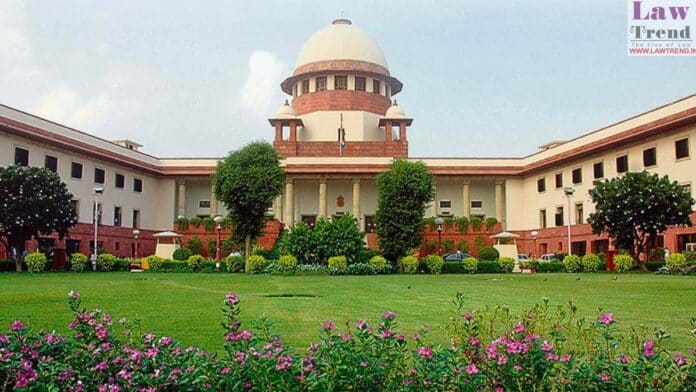The Supreme Court on Thursday questioned the issuance of several constitutional orders which allowed provisions of the Indian Constitution to be applied in Jammu and Kashmir post 1957.
The top court was referring to the Constitution (Application to Jammu and Kashmir) Amendment Orders passed since 1957 till August 6, 2019.
A five-judge bench headed by Chief Justice D Y Chandrachud expressed surprise to the submission of senior advocate Dushyant Dave, appearing for a petitioner, that Article 370, which bestowed special status on the erstwhile state of Jammu and Kashmir, had lived its life and achieved its purpose.

Unlike other senior lawyers, including Kapil Sibal and Gopal Subramanium, Dave argued that Article 370 has not in entirety assumed a permanent character and has lived its worth with the term of the Constituent Assembly of Jammu and Kashmir coming to an end in 1957.
“I respectfully submit that Article 370 has lived its life. It has achieved its purpose. Now, Article 370 (1) survives because tomorrow, if the Constitution is amended and a new article is inserted, which we would like to apply to Jammu and Kashmir also…To this limited extent, this Article 370 (1) may be necessary,” Dave, appearing for petitioner Rifat Ara Butt, said.
CJI Chandrachud then asked Dave: “If Article 370 has worked itself out and achieved its purpose once the constituent assembly for the state of Jammu and Kashmir has completed its task, then where was the occasion thereafter to issue constitutional orders post 1957.”
Dave told the bench, also comprising Justices Sanjay Kishan Kaul, Sanjiv Khanna, B R Gavai and Surya Kant, that once the constituent assembly of Jammu and Kashmir decided that they were to remain with India, then that decision had become untouchable.
“It cannot be revisited. President becomes functus officio in 1954 (after the issuance of constitution order applying most of the provisions of the Indian constitution), so far as Article 370(3) is concerned. Your lordship has expressly accepted this position,” he said.
Arguing on the seventh day of hearing on a batch of pleas challenging the Centre’s August 5, 2019 decision, Dave replied that only Article 370(1) remains so as to extend from time to time any amendments made to the Indian Constitution.
Referring to various exceptions in Article 370, CJI Chandrachud told Dave, “So, your whole argument is that Article 370 has now worked itself out, once the constituent assembly has completed its task. But, that would belie at the least by constitutional practice. Because, even after 1957 there were orders which were issued, constitutional orders progressively modifying the provisions of the Constitution in relation to the state of J-K. Which means, really speaking, Article 370 had continued to operate thereafter.”
He further said therefore it would not be correct to postulate that Article 370 achieved its life and that the temporary provision really assumed the state of permanence in the Indian constitutional fabric.
“Because, then there would not be a question of us of any constitutional orders being issued progressively from 1958 thereafter,” the CJI told the senior lawyer.
The CJI supplemented his question to Dave saying, “Then where is the power to alter the Constitution at all. If your argument is right, then once the constituent assembly in 1957 takes its decision, there is no power to change any provision of the Constitution in relation to the state of J-K. This is contrary to what everyone has argued.”
Dave replied that clause 3 of Article 370 is only in relation to the continuation of the entire provision of Article 370 and since the constituent assembly of Jammu and Kashmir has agreed to be part of India and therefore it is a permanent decision.
The bench said that Dave’s submissions are worthy of consideration.
“We have to deal with the submission. I am trying to explore that. However, there is one internal inconsistency in accepting that submission, because if that submission is right qua the proviso to clause 3, then the consequence would be that once the constituent assembly completed its task in 1957, there could be no amendment to constitution at all under clause 2 of Article 370, which is belied by not merely constitutional practice but the acceptance by both the state of J-K and the Government of India that amendments were being made to the constitution even after 1957 and until the disputed amendment of 2019,” the CJI said.
Also Read
The hearing would resume on August 22.
The bench requested the counsel for petitioners to conclude their arguments on August 22 after which it would hear the submissions of the Centre.
On Wednesday, the top court had asked whether Parliament could have enacted the Jammu and Kashmir Reorganisation Act, which divided the erstwhile state into two union territories, during President’s Rule in 2018-2019.
On August 10, the top court had said the surrender of Jammu and Kashmir’s sovereignty to India was “absolutely complete” with the accession of the former princely state in October 1947, and it was “really difficult” to say that Article 370 of the Constitution, which accorded special status to the erstwhile state, was permanent in nature.
Several petitions challenging the abrogation of the provisions of Article 370 and the Jammu and Kashmir Reorganisation Act, 2019, which split the erstwhile state into two union territories – Jammu and Kashmir, and Ladakh – were referred to a Constitution bench in 2019.







